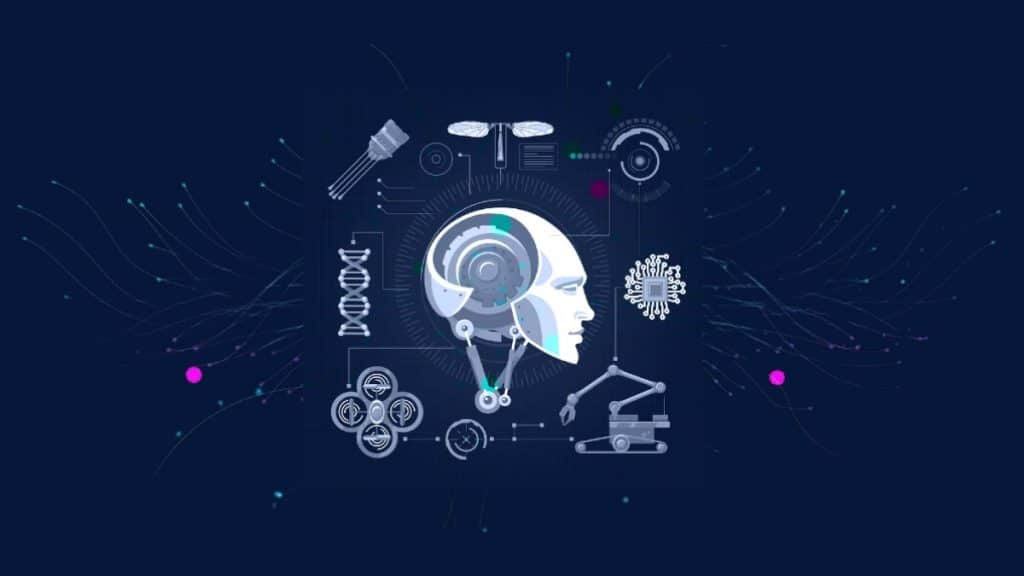Artificial intelligence (AI) has revolutionized countless fields, from healthcare to finance, and now it is making waves in physics. AI offers tools and techniques that allow scientists to tackle problems previously deemed too complex or resource-intensive. With its ability to process vast amounts of data, identify patterns, and predict outcomes, AI is rapidly becoming an indispensable part of modern physics. This article delves into the transformative role of AI in physics, examining how it is reshaping the way physicists address intricate challenges.
The Intersection of AI and Physics
AI and physics may seem like unlikely partners at first glance. Physics, rooted in precise mathematical laws and experimental validation, is a field defined by rigor and exactitude. AI, on the other hand, thrives on probabilities, patterns, and data-driven insights. However, it is precisely this contrast that makes their union so powerful.
In recent years, AI has become a critical tool for physicists, providing new ways to analyze data and model complex systems. For instance, physic AI applications are enabling breakthroughs by streamlining data processing and simulation tasks. These tools allow researchers to uncover hidden patterns and relationships that traditional methods often overlook, providing deeper insights into both theoretical and experimental physics.
AI’s ability to adapt and learn makes it particularly suited for experimental physics. Instead of relying solely on pre-defined rules, AI systems can learn from experimental data, offering insights that may elude even the most seasoned researchers. This intersection of “physic AI” with established methodologies is paving the way for transformative discoveries, pushing the boundaries of what we know about the physical world.
Applications of AI in Physics
One of the most significant contributions of AI to physics is in data analysis and interpretation. Modern experiments, such as those conducted at CERN’s Large Hadron Collider, generate colossal amounts of data. Analyzing these datasets manually or with conventional algorithms can be time-consuming and inefficient. AI, particularly machine learning, has proven invaluable in identifying patterns within these data troves, enabling researchers to draw meaningful conclusions faster and with greater accuracy.
Another critical area where AI shines is in modeling and simulations. Complex physical systems, such as the dynamics of black holes or quantum states, require highly detailed models that can be computationally expensive to produce. AI simplifies this process by creating accurate approximations of these systems. Through techniques like neural networks, researchers can simulate these phenomena more efficiently, saving both time and resources.
Predictive analysis is another arena where AI demonstrates its prowess. By analyzing past data and patterns, AI can forecast outcomes with remarkable precision. In astrophysics, for instance, AI has been employed to predict the behavior of celestial bodies or the distribution of dark matter. Similarly, in material science, AI helps anticipate the properties of new materials, accelerating the discovery process.
Challenges in Implementing AI in Physics
While the potential of AI in physics is undeniable, it is not without challenges. One of the most pressing technical hurdles is data quality. AI algorithms rely heavily on the quality of input data, and inaccuracies or biases can significantly affect results. Additionally, integrating AI with traditional physics models often requires immense computational power, which can be a limiting factor.
There are also ethical and practical concerns. The increasing reliance on AI might diminish the role of human intuition in problem-solving. Furthermore, biases in AI algorithms can lead to skewed outcomes, potentially impacting the reliability of scientific discoveries. These challenges necessitate careful oversight and transparency in the development and deployment of AI tools.
Another challenge lies in bridging the gap between AI and physics expertise. Many physicists lack advanced training in AI, while AI specialists may not fully grasp the nuances of physical theories. Overcoming this divide requires interdisciplinary collaboration and education.
Future Prospects of AI in Physics
The future of AI in physics is incredibly promising. As AI continues to evolve, it is likely to unlock new possibilities in areas such as quantum computing, cosmology, and particle physics. Emerging technologies, like generative AI models, may help physicists explore uncharted territories by creating innovative hypotheses or designing novel experiments.
Collaboration between AI researchers and physicists will be crucial in realizing this potential. By working together, these two communities can develop tools and methodologies that push the boundaries of what is currently possible. The integration of AI into physics is not about replacing human ingenuity but enhancing it, creating a symbiotic relationship where each complements the other.
Implications for Education and Research
For the next generation of physicists, AI proficiency will be essential. Universities and research institutions must adapt by incorporating AI-focused courses into their physics programs. Offering interdisciplinary training that combines physics with AI and data science will ensure that future researchers are well-equipped to navigate this evolving landscape.
Funding will also play a pivotal role in advancing AI-driven physics research. Governments and private organizations must recognize the transformative potential of this intersection and invest in initiatives that encourage innovation and collaboration. Such support will enable groundbreaking discoveries and solidify AI’s role as a cornerstone of modern physics.
Conclusion
AI is revolutionizing physics, offering new tools and perspectives to solve some of the most intricate problems in science. From analyzing vast datasets to modeling complex systems and predicting outcomes, AI is reshaping how physicists approach their work. While challenges remain, the future holds immense promise for this partnership. By embracing AI, physicists can unlock discoveries and deepen our understanding of the universe.
